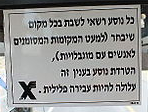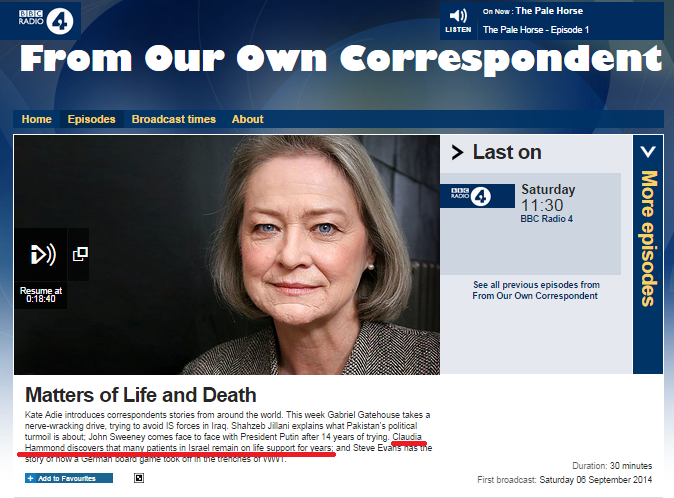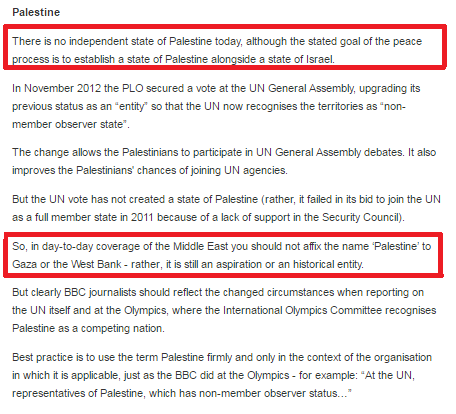The February 23rd edition of the BBC World Service radio programme ‘World Have Your Say’ – which claims to “host your conversations, experiences and perspectives on the big conversations of the moment” [emphasis added] – began (from 00:46 here) with an item loosely based on a story about a catalogue designed for the orthodox sector that was published by the Ikea franchise holder in Israel and which, like a catalogue published several years ago by the company’s franchise in Saudi Arabia, excluded images of women.
The item – which left listeners with some inaccurate and misleading impressions – was introduced by presenter Chloe Tilley as follows:
Tilley: “But first we’ll begin by speaking to ultra-orthodox Jews and others to pick up on a conversation surrounding a magazine released in Israel by Ikea. In it there were no photographs of women. Ikea has apologised for upsetting people but said ‘due to requests we received, we decided to launch an alternative and special catalogue which allows the religious and Haredi communities to enjoy our products in accordance with their life-style’. Well let’s speak now to Jeremy Sharon who is religious affairs reporter for the Jerusalem Post. Ahm…Jeremy, just explain to us why this has become an issue in Israel.”
Sharon: “Well the truth is that this is something which has been going on for quite a long time – ehm…since the 1980s – and in some ultra-orthodox newspapers, before that as well. So I think it has jumped to the headlines because it was an international company like Ikea but in the ultra-orthodox newspapers they do not generally print pictures of women. Some in the past have even not published the names of women and referred to them by their initials. And in other publications it’s often very rare to see pictures of women published, which has changed slightly in recent years with the publication of some illustrations of women in women’s supplements in the ultra-orthodox newspapers.”
Tilley: “But this was just one supplement, wasn’t it? There was another catalogue which people may see in any other part of the world from Ikea that was distributed in Israel. This was just for the Haredi community so why are some people offended by that?”
Sharon: Well I mean I think that’s a good question. I think there is concern that Haredi norms – the norms of the ultra-orthodox society – might penetrate and move into general society. I’m not sure how well justified that is but one example has been in recent years the introduction of gender separate buses where women have to go to the back; ultra-orthodox women need to go to the back – or in fact any women travelling on those lines go to the back of the bus – and men stay on the front. Other examples also can include in certain neighbourhoods attempts to make gender segregation on pavements, on sidewalks. So I think maybe that’s the concern. Having said that, I’m not sure how justified that is but I think, I think there is a concern that this might spread or be forced on the wider public.”
The claim concerning “gender separation on pavements” relates specifically to Jerusalem’s ultra-orthodox Mea She’arim neighbourhood at a certain time of the year and that was ruled illegal by an Israeli court.
“Following several years of active opposition to gender-separate sidewalks on Mea She’arim Street during the Succot holiday, Jerusalem Police said this week that they are satisfied with the arrangements for the busy thoroughfare this year.
In recent years, haredi communal leaders and hassidic yeshivas along Mea She’arim arranged for stretches of the road to be divided into separate sections for men and women during Succot to prevent intermingling – particularly during the evening, when traditional Simhat Beit Hashoeva parties are staged and thousands of people throng the neighborhood. […]
However, the High Court of Justice previously ruled that such arrangements are illegal and last October insisted that the police prevent gender-separation from 2012 onwards.”
Chloe Tilley later repeated the theme of ‘segregation’ on buses while speaking to her interviewee Ruth Colian (08:23):
Tilley: “We heard Jeremy talk about women having to sit at the back of the bus and men at the front.”
And again (at 09:42) while speaking to interviewee Esti Shushan:
Tilley: “Explain in your everyday life, how do you feel like an erased woman? As I said before, Jeremy talked about women having to sit at the back of the bus. What other segregation is there? What other restrictions, if you like, are there on your life as a woman?”
Listeners would therefore be very likely to go away with the impression that buses in Israel are “gender separated” and that women have to “sit at the back” of those buses. That, of course, is not the case and when the New York Times published a similar claim in 2013, CAMERA secured a correction.
Over six years ago – in January 2011 – Israel’s Supreme Court ruled that forced segregation on the specific bus routes dubbed ‘mehadrin lines’, which had been brought in by some private and public bus companies several years earlier, is not legal and that harassment of women to sit in a certain area of a bus is a criminal offence. The court ruled that men and women could sit separately on buses only if they did so voluntarily. Moreover, the court ruled that the public bus company ‘Egged’ had to cancel its ‘mehadrin lines’ and that buses had to carry an announcement informing passengers that everyone is entitled to sit wherever they choose (with the exception of seats reserved for people with disabilities) and that harassment of fellow passengers on that issue is illegal.
In other words, in contrast to the false claims made in this programme, women – ultra-orthodox or not – can sit wherever they like on buses in Israel. Clearly the BBC World Service needs to clarify the inaccurate impression given to listeners.
Related Articles:
Why was a photo-shopped image ‘top story’ on the BBC News website ME page?
The BBC, an Ultra-Orthodox paper and the censorship of images
Resources:
BBC World Service e-mail: worldservice.letters@bbc.co.uk
BBC World Service on Twitter
‘World Have Your Say’ contact details




